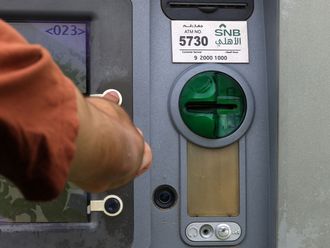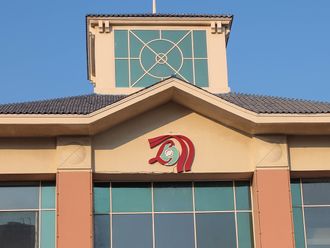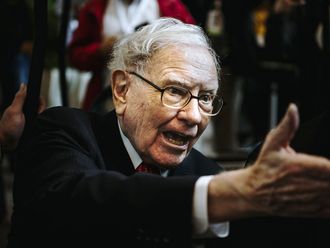BAGHDAD: Iraq’s oil-dominated economy is expected to shrink 0.5 per cent this year, the International Monetary Fund said, a significantly smaller contraction than the 2.7 per cent fall it forecast two months ago.
The IMF attributed the drop in output to the Daesh insurgency in the north and west of the country, but its latest estimate appeared to be based on higher figures for the country’s oil production and exports.
Oil production should reach 3.3 million barrels per day (bpd) in 2014, up from 3.1 million bpd in 2013, with exports remaining at 2013 levels of 2.5 million bpd, the Fund said in a statement on Tuesday after talks with Iraqi officials.
Growth is likely to rebound to about 2 per cent in 2015 with increasing oil production and exports helped by a recent agreement between central government and Kurdish regional authorities over oil exports and budget payments, the IMF said.
Under the deal, which is expected to start in January, 300,000 bpd of oil from Kirkuk will be exported via a pipeline running through Kurdish territory to Turkey, in addition to 250,000 bpd from the Kurdish region’s own fields.
This year’s economic contraction will be the first since the US-led invasion of Iraq in 2003 and follows 4.2 per cent growth in 2013. That was the weakest rate since 2007.
The fund said year-on-year inflation outside Iraq’s conflict-affected areas stood at 0.9 per cent at the end of October.
Falling oil prices and declining revenues contributed to a fall in international reserves to $67 billion (Dh246 billion) from around $77 billion at the start of the year, the IMF said.
The slide in crude prices has forced Prime Minister Haider al-Abadi’s government to scrap its original 2015 draft budget and prepare a revised version to present to parliament.
No budget was approved for 2014, limiting spending in many areas, but off-budget spending, particularly on security, has boosted the deficit to a likely 5 per cent of GDP.
“As projected financing in 2015 will be limited, we expect the government deficit to decline to less than 2 per cent of GDP,” the IMF said.
Iraq has struggled to rebuild its dilapidated infrastructure, hit by wars and economic blockade, and investment is still needed in nearly every sector from electricity to banking.
The oil sector — from which Iraq garners 95 per cent of government revenue — still suffers from ageing infrastructure.












